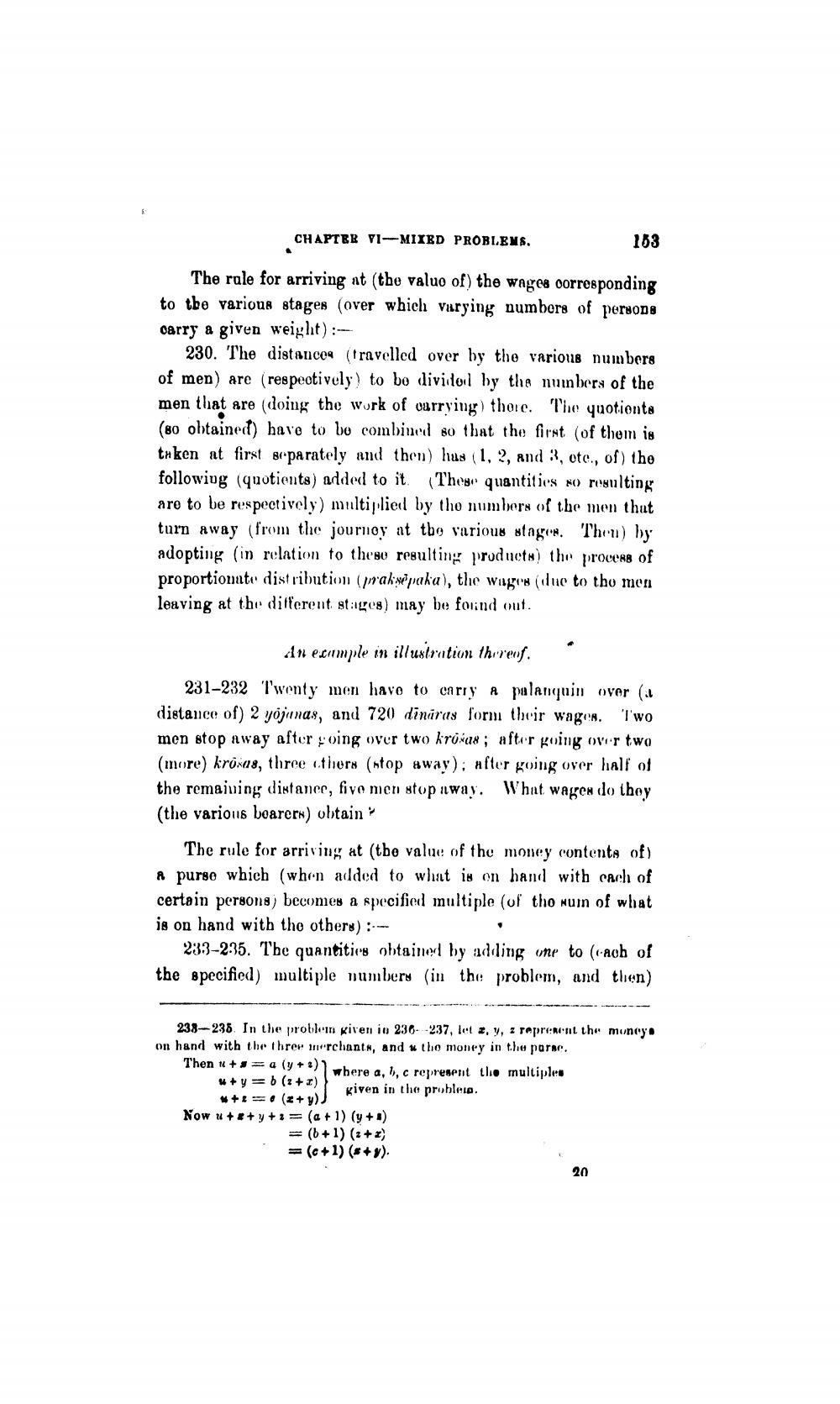________________
CHAPTER VI-MIIED PROBLEMS.
103
The role for arriving at (the valuo of) the wages corresponding to the various stages (over which varying numbers of persons carry a given weight) :
230. The distance (travelled over by the various numbers of men) are (respectively) to be dividol by the nunbers of the men that are doing the work of carrying) thoic. The quotionts (80 obtained) have to bo combined so that the first (of them is taken at first separately and then) hus (1, 2, and 3, ote., of) the followiug (quotients) added to it. Thesr quantities no resulting are to be respectively) multiplied by the numbers of the men thut turn away (from the journoy at the various stage. Theu) by adopting (in relation to these resulting products) the process of proportionate distribution (aksepaka), the wige due to the mon leaving at the different stiges) may be forind out.
Anecommple in illustration thereof.
231-232 Twenty men have to carry A palanguin over ( distance of) 2 yöjunas, and 720 dināras form their wagen. "I'wo men stop away after going over two krošus ; after going ows two (more) kroxas, three others (ntop away); after going over half of the remaiving distance, five men stop away. What wagen do thoy (the various bearers) obtain
The rule for arriving at (the value of the money contents of) & purgo which (when added to what is on hand with cach of certain persons, becomes a specified multiple (of tho nun of what is on hand with the others) :---
233-235. The quantities obtained by adding one to (cach of the specified) multiple numbers (in the problem, and then)
238-238. In the problem kiven in 236--237, let z, y, z represent the munoy. on hand with the threw Inwrchants, and the money in the porse. Then * += a (y + 2) where a, b, c represent the multiples
* + y = b (z +I) viven in the publere
*+ = (2+ y)) Now ++y+= (a + 1) (y + 1)
= (b + 1) (2+2) = (c+1) (*+y).




